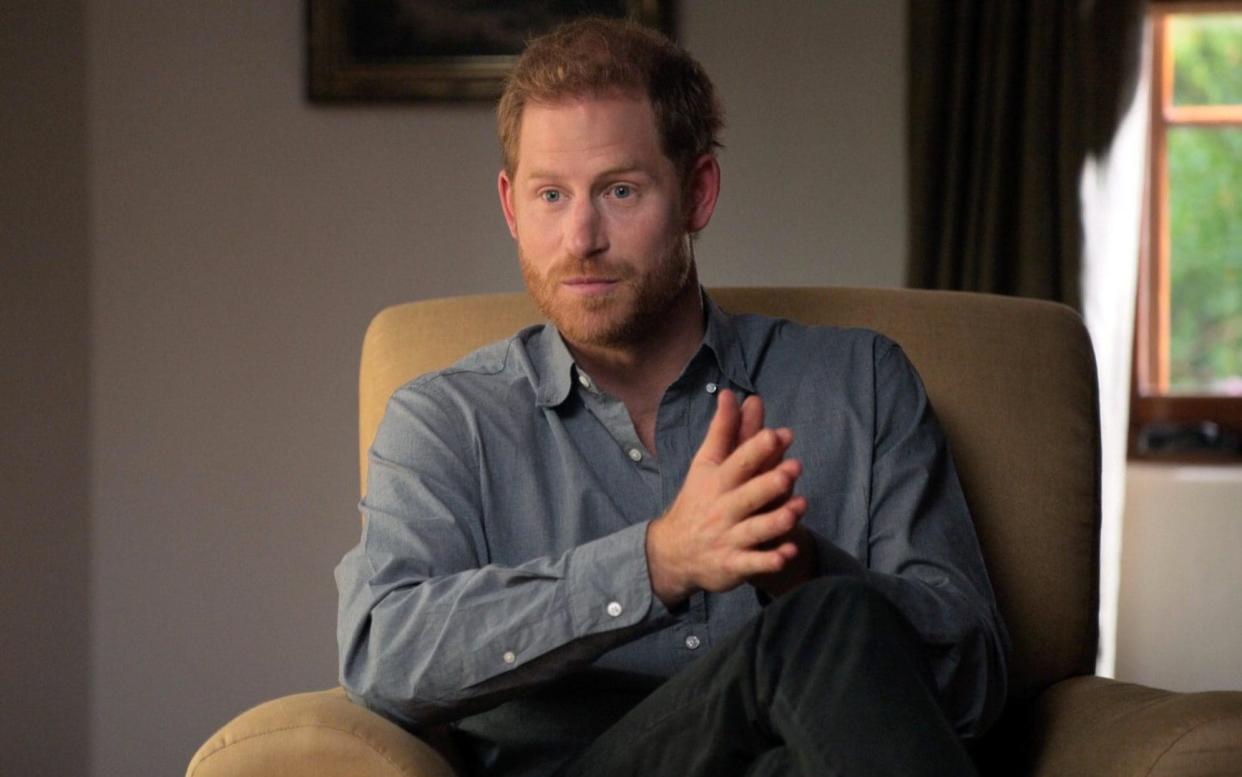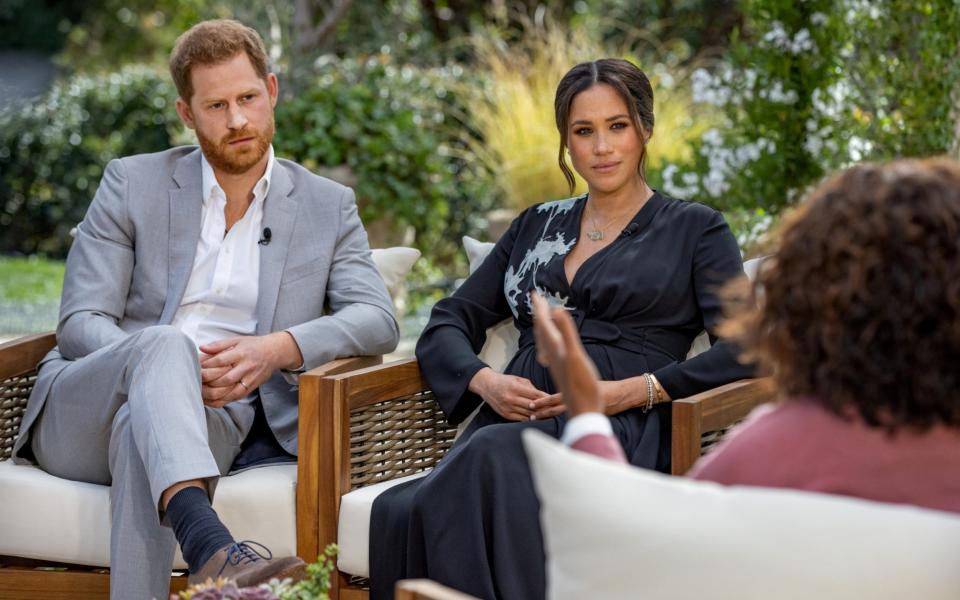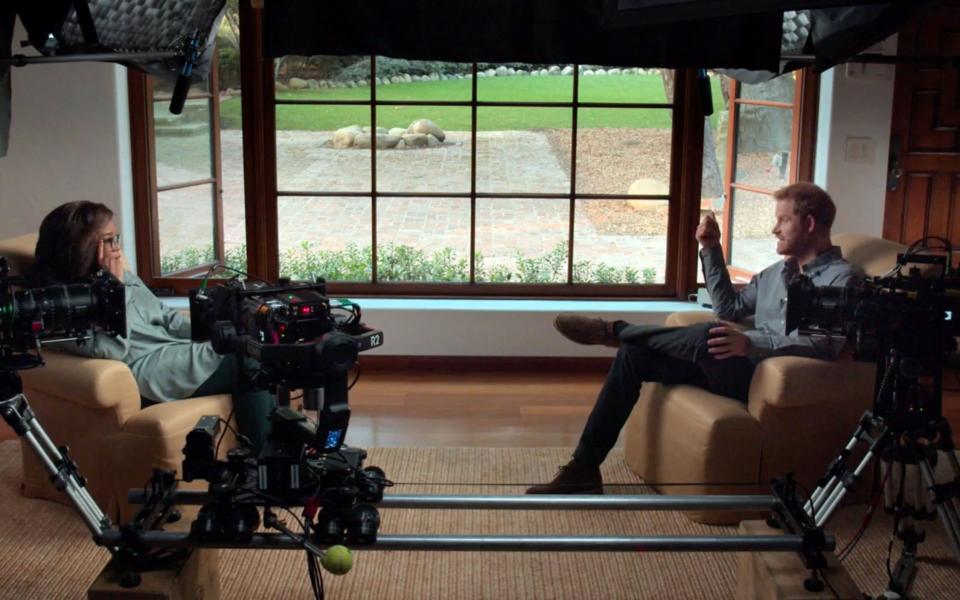Prince Harry insists Oprah Winfrey interview was done in 'most compassionate way possible'

- Oops!Something went wrong.Please try again later.
- Oops!Something went wrong.Please try again later.
The Duke of Sussex has insisted that his Oprah Winfrey interview was done in “the most compassionate way possible” to pave the way for reconciliation.
Speaking on his new AppleTV mental health series, he claimed that the “forces working against” him and the Duchess of Sussex had tried to make it “impossible” for them to leave the UK, admitting that their departure was “incredibly sad”.
He accused both the Royal family and the media of trying to “smear” Meghan, 39, in what he described as a “combined effort” that had left her sobbing into her pillow whilst trying not to wake him because he was “carrying too much.”
But the Duke said he knew his mother, Diana, Princess of Wales, would be proud he was living the life she had wanted for him.
He said that “grandma Diana” was one of the first things his two-year-old son, Archie, had said and that he has a photograph of the Princess on his nursery wall.
Explaining their decision to give a bombshell interview to Ms Winfrey, in which they accused members of the Royal family of racism and of ignoring their pleas for help when Meghan was suicidal, the Duke insisted that it was “about being real and authentic” and sharing experiences that are relatable to people around the world.
“I like to think that we were able to speak truth in the most compassionate way possible therefore leaving an opening for reconciliation and healing,” he said.

The Queen later issued a statement expressing sadness at the couple's revelations but noting that "recollections may vary".
Prince Harry said it was before the Oprah interview aired in March that he had been woken by his wife crying in the middle of the night.
“She doesn't want to wake me up because I’m carrying too much,” he said.
“That's heartbreaking. I held her, we talked, she cried, she cried and she cried.”
But he added: “Therapy has equipped me to be able to take on anything. That's why I'm here now, that’s why my wife is here now. Without therapy and without doing the work, we would not be able to withstand this.
“I’ve never had any anger through this, I’ve always had compassion.”
The Duke admitted that abandoning his life in the UK was “scary,” adding: “At every possible opportunity, the forces that were working against us tried to make it impossible.”
He accused the media of "desperately trying to control the narrative", adding: "They know if they lose it, the truth will come out."

However, he said he had “no regrets at all” and was now in a place where he feels he should have been four years ago.
“I’ve learnt more about myself in the last four years than in the 32 years before that,” he said.
“I have my wife to thank for that.”
The Duke said he had no doubt his mother would be proud of him, adding: “I’m living the life she wanted to live for herself.
“I’m living the life that she wanted us to be able to live. So not only do I know that she's incredibly proud of me but that she’s helped me get here. I’ve never felt her presence more as I have done over the last year.”
Expressing sadness that she would never meet the Duchess or their son, Archie, he added that he was “on his way” to healing that part of his life and was a better version of himself.
In a separate interview to promote the series, The Me You Can’t See, the Duke revealed that he had been “worried” and “afraid” about returning to London for the Duke of Edinburgh’s funeral.
He revealed on the documentary that flying into London was a “trigger” for his trauma, as he was returning to a place that he felt trapped and hunted by cameras.

